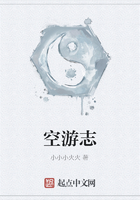When Vail said auf wiedersehen to the telephone business, it had passed from infancy to childhood. It was well shaped but not fully grown. Its pioneering days were over. It was self-supporting and had a little money in the bank. But it could not then have carried the load of traffic that it carries to-day. It had still too many problems to solve and too much general inertia to overcome. It needed to be conserved, drilled, educated, popularized. And the man who was finally chosen to replace Vail was in many respects the appropriate leader for such a preparatory period.
Hudson--John Elbridge Hudson--was the name of the new head of the telephone people.
He was a man of middle age, born in Lynn and bred in Boston; a long-pedigreed New Englander, whose ancestors had smelted iron ore in Lynn when Charles the First was King. He was a lawyer by profession and a university professor by temperament. His specialty, as a man of affairs, had been marine law; and his hobby was the collection of rare books and old English engravings. He was a master of the Greek language, and very fond of using it. On all possible occasions he used the language of Pericles in his conversation; and even carried this preference so far as to write his business memoranda in Greek. He was above all else a scholar, then a lawyer, and somewhat incidentally the central figure in the telephone world.
But it was of tremendous value to the telephone business at that time to have at its head a man of Hudson's intellectual and moral calibre.
He gave it tone and prestige. He built up its credit. He kept it clean and clear above all suspicion of wrong-doing. He held fast whatever had been gained. And he prepared the way for the period of expansion by borrowing fifty millions for improvements, and by adding greatly to the strength and influence of the American Telephone and Telegraph Company.
Hudson remained at the head of the telephone table until his death, in 1900, and thus lived to see the dawn of the era of big business. Under his regime great things were done in the development of the art. The business was pushed ahead at every point by its captains. Every man in his place, trying to give a little better service than yesterday--that was the keynote of the Hudson period. There was no one preeminent genius. Each important step forward was the result of the cooperation of many minds, and the prodding necessities of a growing traffic.
By 1896, when the Common Battery system created a new era, the telephone engineer had pretty well mastered his simpler troubles. He was able to handle his wires, no matter how many.
By this time, too, the public was ready for the telephone. A new generation had grown up, without the prejudices of its fathers. People had grown away from the telegraphic habit of thought, which was that wire communications were expensive luxuries for the few. The telephone was, in fact, a new social nerve, so new and so novel that very nearly twenty years went by before it had fully grown into place, and before the social body developed the instinct of using it.
Not that the difficulties of the telephone engineers were over, for they were not. They have seemed to grow more numerous and complex every year. But by 1896 enough had been done to warrant a forward movement. For the next ten-year period the keynote of telephone history was EXPANSION. Under the prevailing flat-rate plan of payment, all customers paid the same yearly price and then used their telephones as often as they pleased. This was a simple method, and the most satisfactory for small towns and farming regions. But in a great city such a plan grew to be suicidal. In New York, for instance, the price had to be raised to $240, which lifted the telephone as high above the mass of the citizens as though it were a piano or a diamond sunburst. Such a plan was strangling the business. It was shutting out the small users. It was clogging the wires with deadhead calls. It was giving some people too little service and others too much. It was a very unsatisfactory situation.
How to extend the service and at the same time cheapen it to small users--that was the Gordian knot; and the man who unquestionably did most to untie it was Edward J. Hall. Mr. Hall founded the telephone business in Buffalo in 1878, and seven years afterwards became the chief of the long-distance traffic. He was then, and is to-day, one of the statesmen of the telephone.
For more than thirty years he has been the "candid friend" of the business, incessantly suggesting, probing, and criticising. Keen and dispassionate, with a genius for mercilessly cutting to the marrow of a proposition, Hall has at the same time been a zealot for the improvement and extension of telephone service. It was he who set the agents free from the ball-and-chain of royalties, allowing them to pay instead a percentage of gross receipts. And it was he who "broke the jam," as a lumberman would say, by suggesting the MESSAGE RATE system.
By this plan, which U. N. Bethell developed to its highest point in New York, a user of the telephone pays a fixed minimum price for a certain number of messages per year, and extra for all messages over this number. The large user pays more, and the little user pays less. It opened up the way to such an expansion of telephone business as Bell, in his rosiest dreams, had never imagined. In three years, after 1896, there were twice as many users; in six years there were four times as many; in ten years there were eight to one. What with the message rate and the pay station, the telephone was now on its way to be universal. It was adapted to all kinds and conditions of men. A great corporation, nerved at every point with telephone wires, may now pay fifty thousand dollars to the Bell Company, while at the same time a young Irish immigrant boy, just arrived in New York City, may offer five coppers and find at his disposal a fifty million dollar telephone system.















